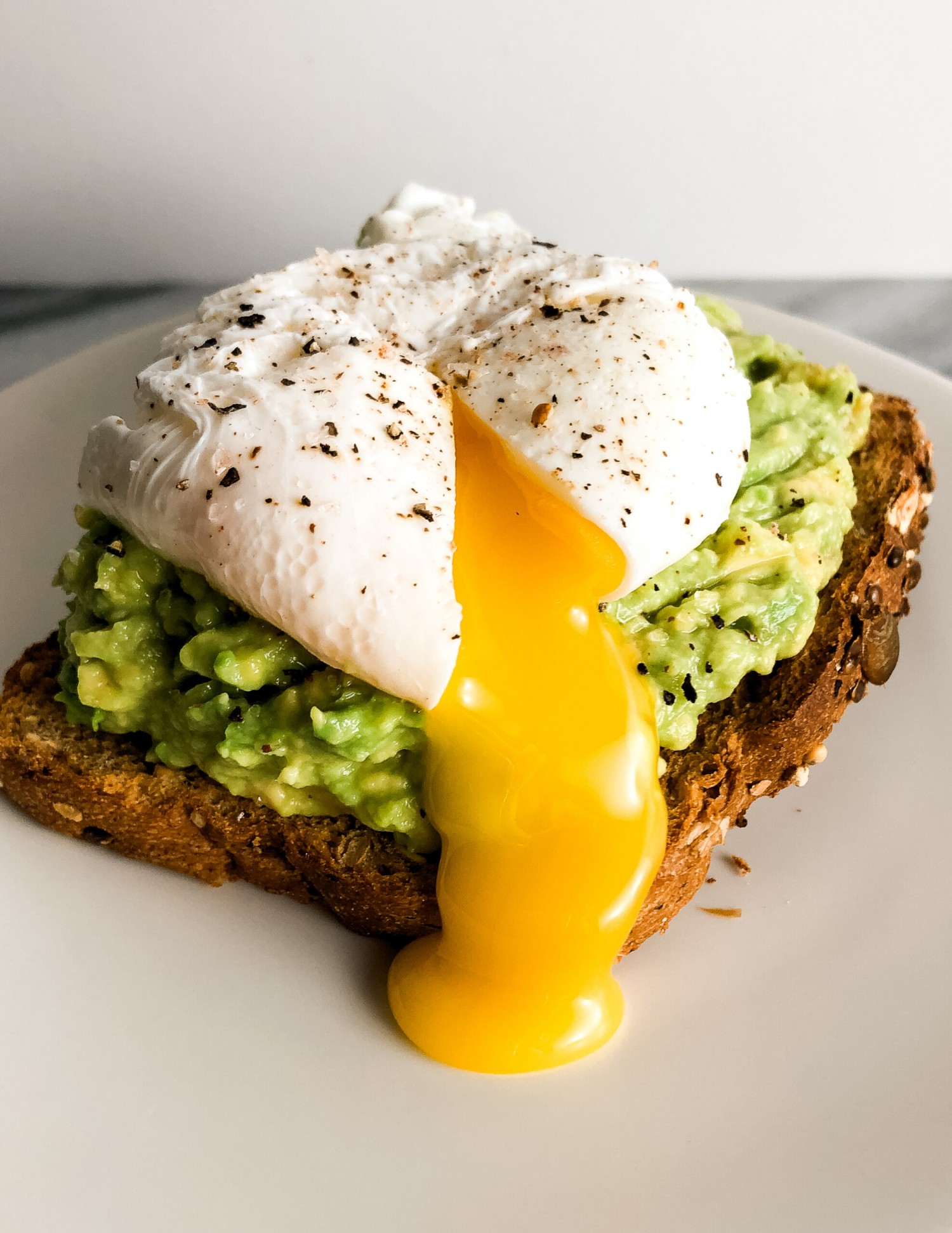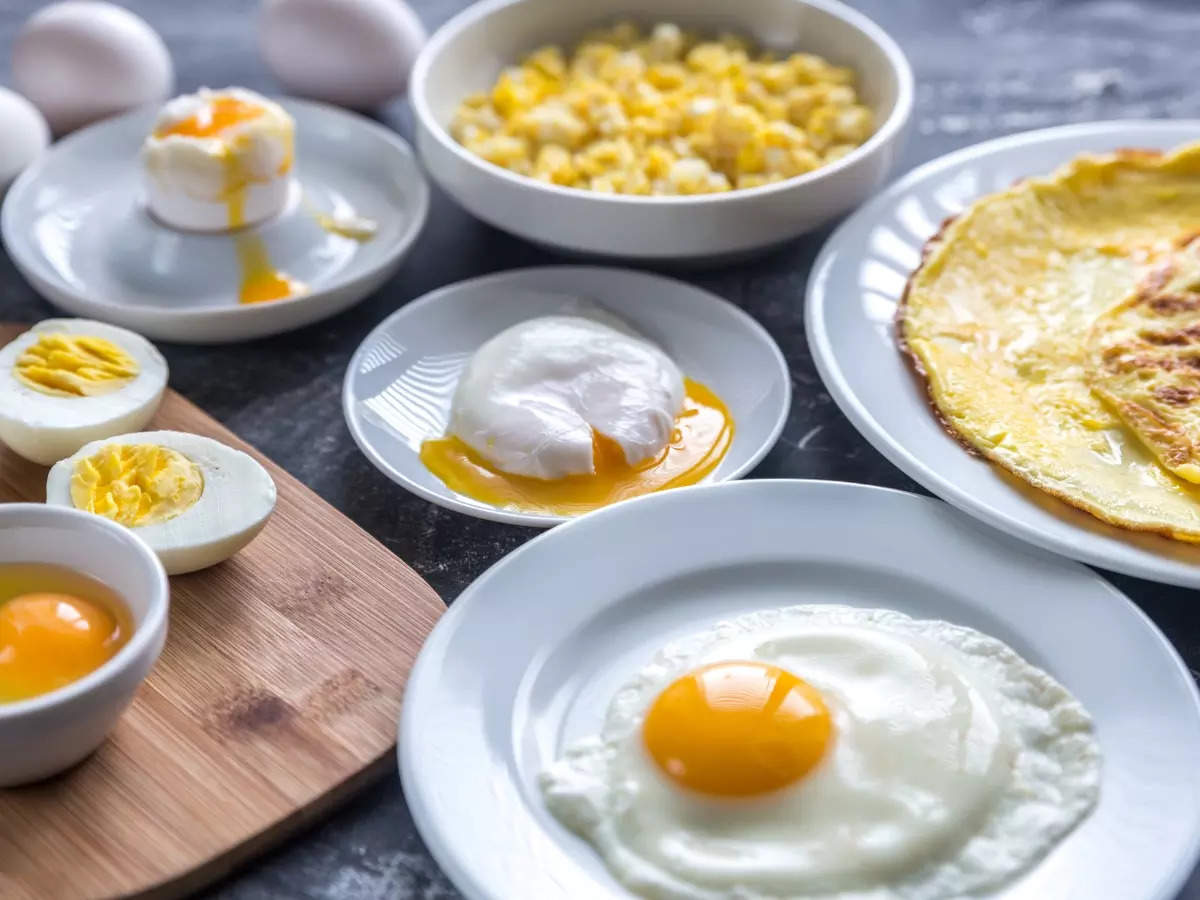Cooking eggs might seem like a simple task, but even the most experienced chefs can make mistakes that result in less-than-perfect egg dishes. Whether you’re scrambling, poaching, or boiling eggs, there are several common errors that can lead to disappointing outcomes. In this comprehensive guide, we’ll explore these mistakes and provide tips on how to avoid them to achieve egg-cellent results every time.
Mistakes in Scrambled Eggs
:max_bytes(150000):strip_icc()/256007-best-scrambled-eggs-ddmfs-3X4-0031-ff526aac78f24031a5f947a546918a39.jpg)
Using the Wrong Skillet:
Problem: Using the wrong skillet for cooking scrambled eggs can lead to sticking and messy cleanup.
Solution: Avoid using a cast-iron skillet for cooking scrambled eggs, as the eggs are likely to stick to the pan, making cleanup difficult. Instead, opt for a nonstick skillet to ensure easy cooking and cleanup. Nonstick pans are designed to prevent food from sticking, making them ideal for cooking delicate dishes like scrambled eggs.
Cooking Over High Heat:
Problem: Cooking scrambled eggs over high heat can result in dry, overcooked eggs.
Solution: It’s important to cook scrambled eggs over medium to medium-low heat to ensure even cooking and prevent them from drying out. Preheat the pan over medium heat and then reduce the heat to medium-low once you add the eggs. This allows for gentle cooking, resulting in creamy, fluffy eggs.
Scrambling Eggs Directly in the Pan:
Problem: Scrambling eggs directly in the pan can result in unevenly mixed and streaky eggs.
Solution: Avoid cracking the eggs directly into the pan and scrambling them there. Instead, crack the eggs into a separate bowl and beat them well with a fork or whisk until they are fully combined. This ensures that the eggs are evenly mixed and results in a smoother texture.
Not Moving the Eggs Around:
Problem: Not moving the eggs around in the pan while cooking can result in a crust forming on the bottom and dry, overcooked eggs.
Solution: It’s important to continuously move the eggs around in the pan while they are cooking to create soft, billowy curds. This helps prevent the eggs from sticking to the bottom of the pan and ensures that they cook evenly. Use a spatula to gently stir and fold the eggs as they cook, moving them from the edges of the pan towards the center.
Letting the Eggs Overcook:
Problem: Leaving scrambled eggs in the hot pan after cooking can result in overcooked, rubbery eggs.
Solution: Once the scrambled eggs are cooked to your desired consistency, immediately remove them from the hot pan and transfer them to a serving dish. The residual heat from the pan can continue to cook the eggs, so it’s important to remove them from the heat source as soon as they are done cooking. This helps ensure that the eggs remain creamy and tender.
Mistakes in Poached Eggs

Using Less-than-Fresh Eggs:
Problem: Using eggs that are not fresh can result in thin, runny egg whites that do not hold together during poaching.
Solution: To ensure the best results when poaching eggs, use fresh eggs that have been stored properly. Fresh eggs have thicker whites that coagulate more easily, resulting in poached eggs with a better shape and texture.
Adding Eggs Directly into the Water:
Problem: Adding eggs directly into the poaching water can result in uneven cooking and messy eggs.
Solution: Instead of cracking the eggs directly into the water, it’s best to crack them into small bowls or ramekins first. Then, gently lower the eggs into the simmering water using a slotted spoon. This method helps maintain the shape of the eggs and prevents them from spreading out too much in the water.
Adding Vinegar to the Pot:
Problem: Adding vinegar to the poaching water before adding the eggs can result in dispersed acidity and less effective egg coagulation.
Solution: Instead of adding vinegar to the pot of water, add a small amount directly to each egg before poaching. This ensures that the vinegar comes into direct contact with the egg whites, helping them coagulate more quickly and evenly.
Using Water at the Wrong Temperature:
Problem: Using water that is too hot or too cold for poaching can result in broken egg whites or yolks.
Solution: The ideal poaching temperature is around 180-190°F (82-88°C), which is just below boiling. At this temperature, small bubbles should be visible at the bottom of the pot, but the water should not be boiling. Poaching eggs at this temperature ensures gentle cooking and prevents the eggs from breaking apart.
Seasoning the Water:
Problem: Adding salt to the poaching water can cause the egg whites to break down and result in messy poached eggs.
Solution: Avoid seasoning the poaching water with salt. Instead, add salt to the eggs after they have been poached and removed from the water. This prevents the salt from affecting the texture of the egg whites and helps maintain the shape of the poached eggs.
Mistakes in Boiled Eggs
:max_bytes(150000):strip_icc()/277952-Air-Fryer-Hard-Boiled-Eggs-ddmfs-4x3-065-1-165548672bc44827b7a2758ae3717a77.jpg)
Common Mistakes in Boiled Eggs:
Boiled eggs are a versatile and nutritious food that can be enjoyed in various dishes, from salads to sandwiches. However, achieving the perfect boiled egg can be trickier than it seems. In this blog post, we’ll explore some common mistakes that people make when boiling eggs and provide tips on how to avoid them to achieve eggs with perfectly cooked whites and creamy yolks every time.
Adding Eggs to Hot Water:
Problem: Adding eggs to hot water can cause them to crack, leading to uneven cooking and potentially messy eggs.
Solution: Instead of adding eggs directly to hot water, start with cold water and gently add the eggs to the pot before heating. This gradual increase in temperature helps prevent the eggs from cracking and ensures more even cooking.
Boiling Eggs for Too Long:
Problem: Boiling eggs for too long can result in overcooked yolks and rubbery whites.
Solution: To achieve perfectly cooked boiled eggs, it’s important to remove them from the heat as soon as they are done cooking. For hard-boiled eggs, this typically takes about 10-12 minutes, while soft-boiled eggs may only need 4-6 minutes. Use a timer to avoid overcooking the eggs.
Leaving Eggs in Hot Water for Too Long:
Problem: Leaving boiled eggs in hot water after cooking can result in overcooking and rubbery textures.
Solution: Once the eggs have finished cooking, immediately remove them from the hot water and place them in a bowl of ice water to stop the cooking process. This helps prevent overcooking and ensures that the eggs remain tender and creamy.
Peeling Eggs Too Soon:
Problem: Peeling boiled eggs too soon after cooking can result in difficulty removing the shell and potentially messy eggs.
Solution: Allow the boiled eggs to cool for a few minutes before attempting to peel them. The cooling process helps shrink the egg whites slightly, making them easier to separate from the shell. To further ease the peeling process, gently tap the eggs on a hard surface to crack the shell before peeling.
Crowding Eggs in the Pot:
Problem: Boiling too many eggs in a small pot can result in uneven cooking and potentially cracked eggs.
Solution: When boiling eggs, use a pot that is large enough to accommodate them without overcrowding. This ensures that the eggs have enough room to cook evenly and reduces the risk of them bumping into each other and cracking.
Conclusion
By avoiding these common mistakes when cooking eggs, you can ensure that your egg dishes turn out perfectly every time. Whether you’re scrambling, poaching, or boiling eggs, following these tips will help you achieve egg-cellent results and impress your friends and family with delicious egg dishes. So go ahead, crack some eggs, and cook with confidence!


